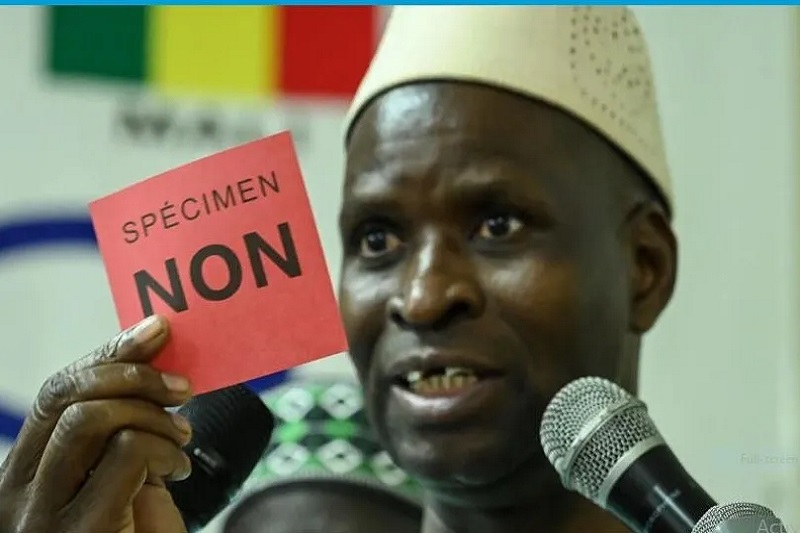On Sunday, June 18, at 6:00 p.m. UTC, polling booths in Bamako, Mali, closed so that election officials could begin tallying the votes. Voting on a new constitution had taken place throughout the day among the populace. The revised draft of the constitution includes a number of significant modifications, the most significant of which are a strengthening of the president’s powers, the reforming of institutions, and the recognition of traditional authority.
The supervisor of the Constitutional Court, Hamadoun Sissoko, expressed satisfaction with the voting procedure. “We did not experience any difficulties with either our delegates or the individuals in charge of the polling sites. When we walk around, all we have to do is present ourselves as supervisors of the Constitutional Court, and then they will let you work with your delegate. This is the case every time. We haven’t run into any issues yet.” Roughly 8.4 million citizens met the requirements to cast a ballot in the referendum.
It was decided not to hold elections in certain sections of the country, including the town of Kidal, which was a stronghold of former rebels, due to the risk of jihadist strikes in the central and northern provinces.There weren’t many voting-related issues in the polling places they visited, according to the findings of a team of observers made up of members of civil society organisations with support from the European Union.
Related Posts
In addition to this, it was claimed that more than 80 polling sites in Mopti, which is located in the middle of the country, were closed “due to insecurity.” The group claimed that a “terrorist attack” had prevented voters in Bodio from casting their ballots, but they did not provide any other information.
According to statements made by local elected authorities, voting was restricted to only the region’s capital, Menaka, which is located in the northern part of the country and is battling insurgents linked to the Islamic State group. According to reports, political disagreements also hindered voters in some localities from casting their ballots.
The participation rate, which is generally low in a country with a population of 21 million, will be viewed as an indicator of the ability of the junta to restore order and generate popular excitement for its agenda. The head of a polling station in Bamako expressed optimism about the turnout, saying, “I don’t think the participation rate will be low.” Hamidou Nantié Bougoudogo remarked on this. “From my vantage point, that is. “I have my fingers crossed that the rate will be as high as we would like it to be.”
Col. Assimi Gota, the leader of the transitional government that favours a yes vote in the drafted constitution, cast his ballot in the town of Kati, which is a garrison. He has stated that the new constitution will “pave the way towards a new, strong, and efficient Mali, at the service of the population’s well-being.”
The junta had promoted the new constitution as the solution to Mali’s inability to deal with its numerous challenges before it was overthrown. After seizing power in 2020, Gota has committed to handing over government authority to civilians four years later, in 2024. He encouraged the people of Mali to maintain their unity regardless of the outcome of the referendum. Within the next 72 hours, results should be expected.

